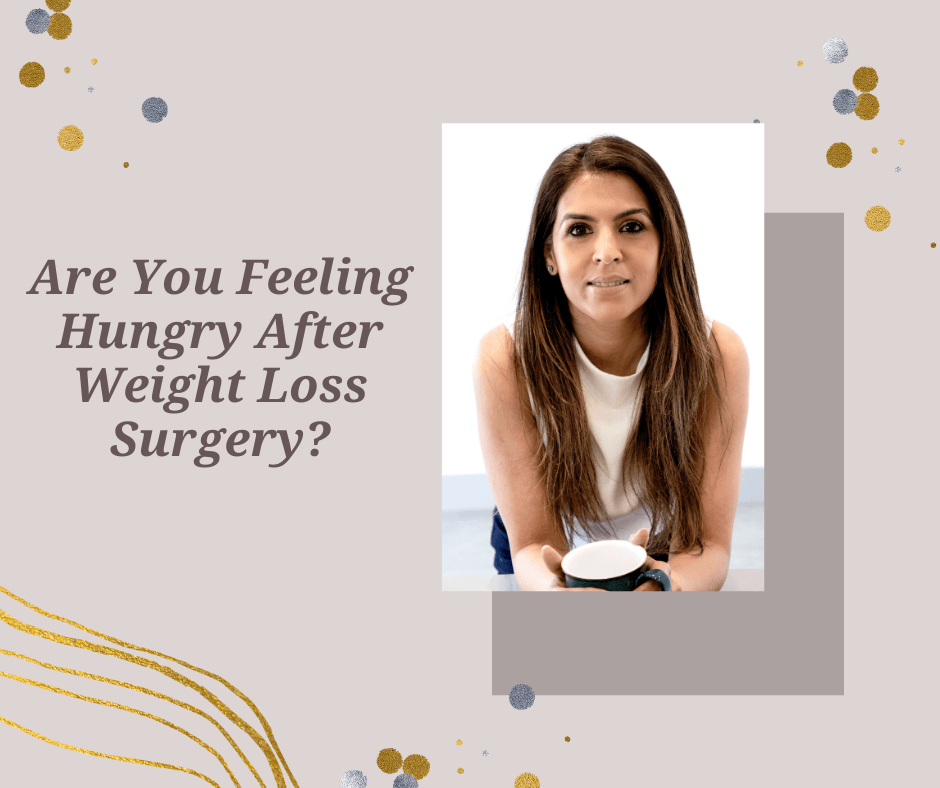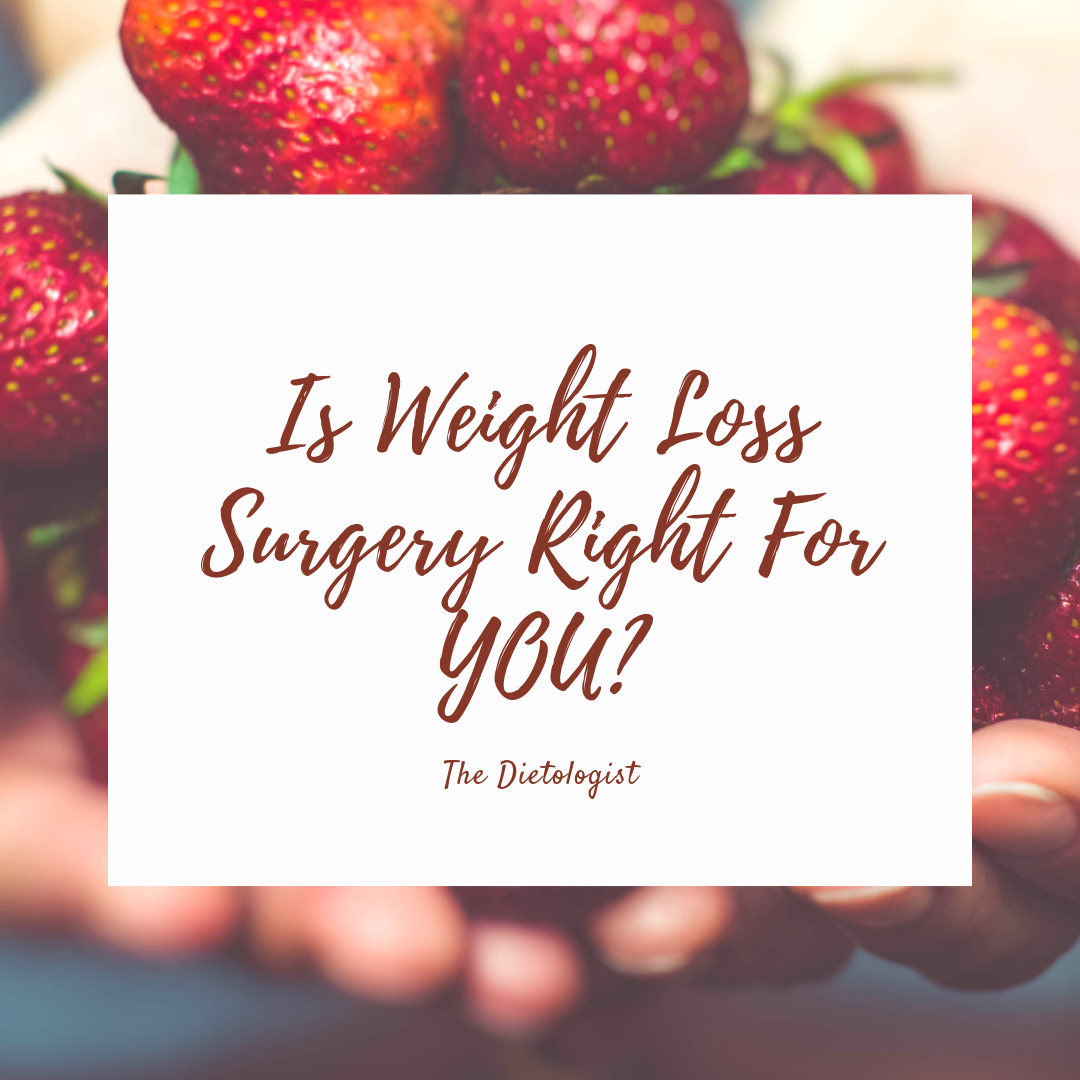Feeling Hungry After Weight (Bariatric) Loss Surgery
Remember Surgery Doesn't Control Emotional Hunger

Initially after surgery, you may or may not feel “real” hunger, that’s the hunger from the stomach. In fact, you may have no appetite at all. So, it's important to eat three meals a day with a focus on protein and you may need high protein snacks too.
Although you’ve had weight loss surgery It’s quite normal for some of the hunger to return post-surgery as you’re eating a lot less, don’t panic! As your appetite returns, you may be confused whether you are really hungry or if the hunger is just in your head (emotional).
How can you tell?
Head "emotional" hunger is about eating to soothe uncomfortable feelings:
· It comes on quickly.
· Cravings are for specific foods.
· They’re usually specific foods you restrict from your diet.
· Feelings of hunger are “above the neck.”
· Head hunger is sudden and you’re likely to eat quickly or in secret.
Stomach “real” hunger is about eating for nourishment:
· It comes on gradually.
· The hunger usually begins with stomach sensations such as grumbling, gurgling, or growling.
· Preferences for food are flexible and usually nourishing.
· You may experience light-headedness or dizziness.
· Real hunger comes on slowly, you’re likely to eat slowly and with company.
Remember weight loss surgery doesn’t control head (emotional)hunger. Managing this takes lots of support and practice.
A few tips to help control head hunger:
Breathe: Shut your eyes and focus on your breath going in and out.
Identify your feelings: See if you can identify the feelings you were having before you started focusing on food. You may have had several feelings at once such as happy, excited, stressed, lonely, or even just bored.
Feel the Feeling for 5 Minutes: Sit calmly and feel the feelings you have identified. This might be awkward or uncomfortable. But you’ll find that as you acknowledge and feel these feelings, their power will lessen.
Consider Other Options: Are there other ways to handle your feelings? Will food solve the problem or create another problem? Take action on a problem rather than internalise it. Make a list of alternative actions. For example:
· Run a hot bath.
· Listen to calming music.
· Distract yourself with a movie, book, or project.
· Call a friend—someone who will allow you to vent.
· Journal your feelings. Writing them down gets them out of your head.
· Engage in a favourite hobby.
· Go for a walk and change your environment.
Remember that food might numb your feelings in the moment. But eating is not good for curing loneliness, sadness, or frustration. The Dietologist can support you to help you overcome emotional eating and begin (or continue) to develop a healthier relationship with food.



